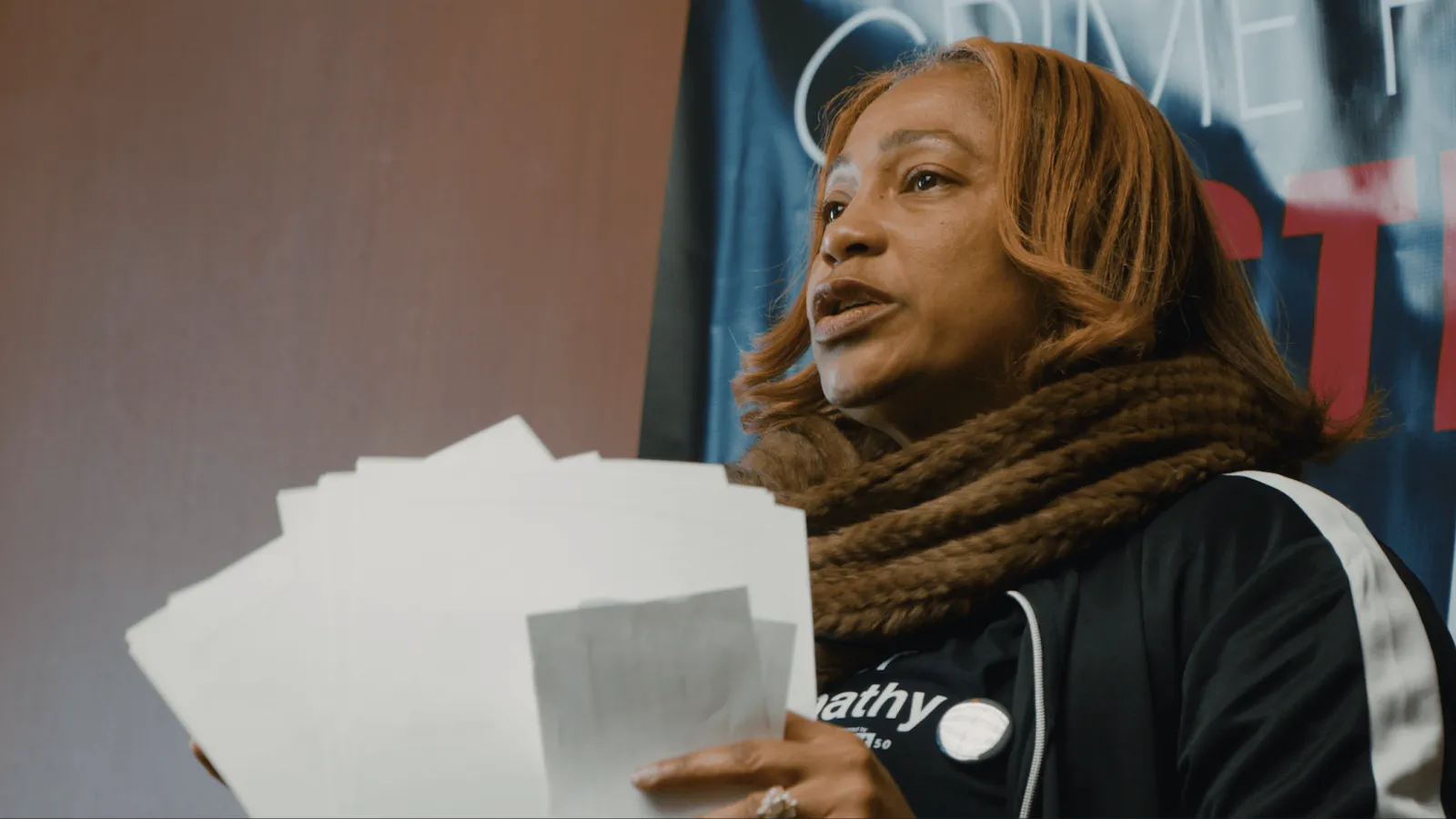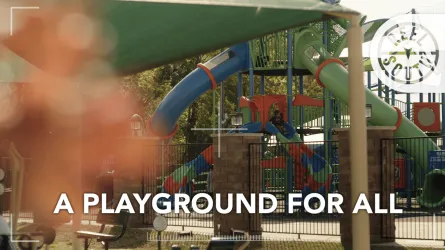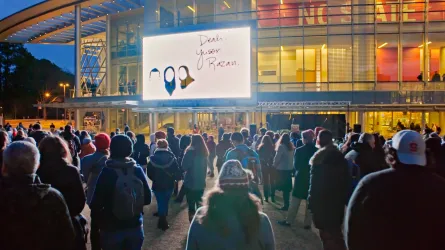After experiencing neglect and traumatic loss while pregnant in prison, Pamela Winn becomes an activist, leading hundreds of thousands to support the Dignity Bill to end the shackling of pregnant people in prison. The Reel South Short film "Winn" exposes the horrifying experience that incarcerated pregnant people endure and documents Pamela’s mission to end shackling in the South.
Before the PBS online streaming premiere, Reel South digital producer Heather Nunerley connected with the filmmakers to highlight the behind-the-scenes details of the film's creation. "Winn" is streaming now on PBS here. Note: This interview has been condensed and edited for clarity and length.
Heather: How do you hope the film will be received by viewers?
Joseph: We hope audiences empathize and feel moved by this important human rights issue through Pamela Winn's compelling personal story. We hope audiences feel inspired by Pamela’s story of resilience, strength, and ultimate triumph and by the power one person can have in shaping laws that forward justice and dignity. We also hope audiences feel stirred to become advocates in their own right: to vote people into office who care about and will fight to pass laws protecting incarcerated pregnant people.
Heather: What do you hope viewers learn from the film?
Joseph: When I first met Pamela in 2019, I knew nothing about the condition of pregnant people in prison and the lack of legislation and resources to protect them. So first and foremost, I hope this film shines a light on this issue that affects thousands of people, so others like me have an opportunity to learn about it and support organizations like Pamela’s that are actively working in states across the country to enhance the lives of directly impacted women. You can support Pamela’s work through her non-profit organization RestoreHER: www.restoreher.us.
Heather: Were there any moments you wish you could have included in the film? Any scenes that you wished you captured?
Joseph: I would have loved to capture more of the process of Pamela working to pass the Dignity bill, but am still really happy with how that sequence turned out in the film.
Heather: How was it working as a team? Do you have insight for other filmmakers working as a team?
Joseph: I’ve loved working with this team and have learned a lot working with Erica and Evan. It’s always great finding collaborators who are aligned and care about telling a great story in a way that respects everyone involved, first and foremost, the participants in the story. That was important to all of us in a story like this. I had never worked with animators before so it was amazing working with Shawna and her team at Mass FX Media who did all of our animated sequences. Mark Crawford, our composer, was incredible and really brought the film to a new level with his score. We’ve also been lucky to work with the team from IF/Then | Field of Vision who have been incredibly helpful to us in navigating distribution within the short documentary space. This project began during the pandemic in 2020. Erica lives in California, Evan in New York and I’m in Atlanta. Our editor Michal lives in New York. Most of us connected through the making of this film, and it was made almost entirely remotely through many discussions over Zoom, so syncing up everyone’s time zones alone could be challenging at times to work through. It’s crazy to think about, but the first time I met Erica and Evan in person was at the screening of "Winn" at our first two festivals.
Heather: Individually, what are your favorite parts of the film?
Joseph: One thing I love about the film is Pamela’s transformation into an activist and her determination to make change through telling her personal story, even though it was painful to do so. And the thing about the film I’m most proud of is the use of animation. We used Pamela’s drawings as inspiration and at times exact reproductions for those sequences, which tell Pamela’s backstory of losing her baby in prison due to shackling. And during the process, we decided these sequences would be art directed by Pamela herself. She would give notes to us and the animators on the way the light looked in her prison cell, or the feeling certain scenes should have, which was invaluable guidance. We were attempting to portray her memories of the darkest, lowest point in her life, so it was essential to our team that Pamela was front and center in telling her own story and the manner in which it was told. We are proud of the way it turned out and grateful to Pamela for letting us into that process with her.
Heather: What is next for you all? Any projects or teases you can share with us?
Joseph: Right now, the three of us are working on a feature film following Pamela’s recent work to end prison birth. We are still in production and excited to move into post and begin putting the film together.
Category
Share


